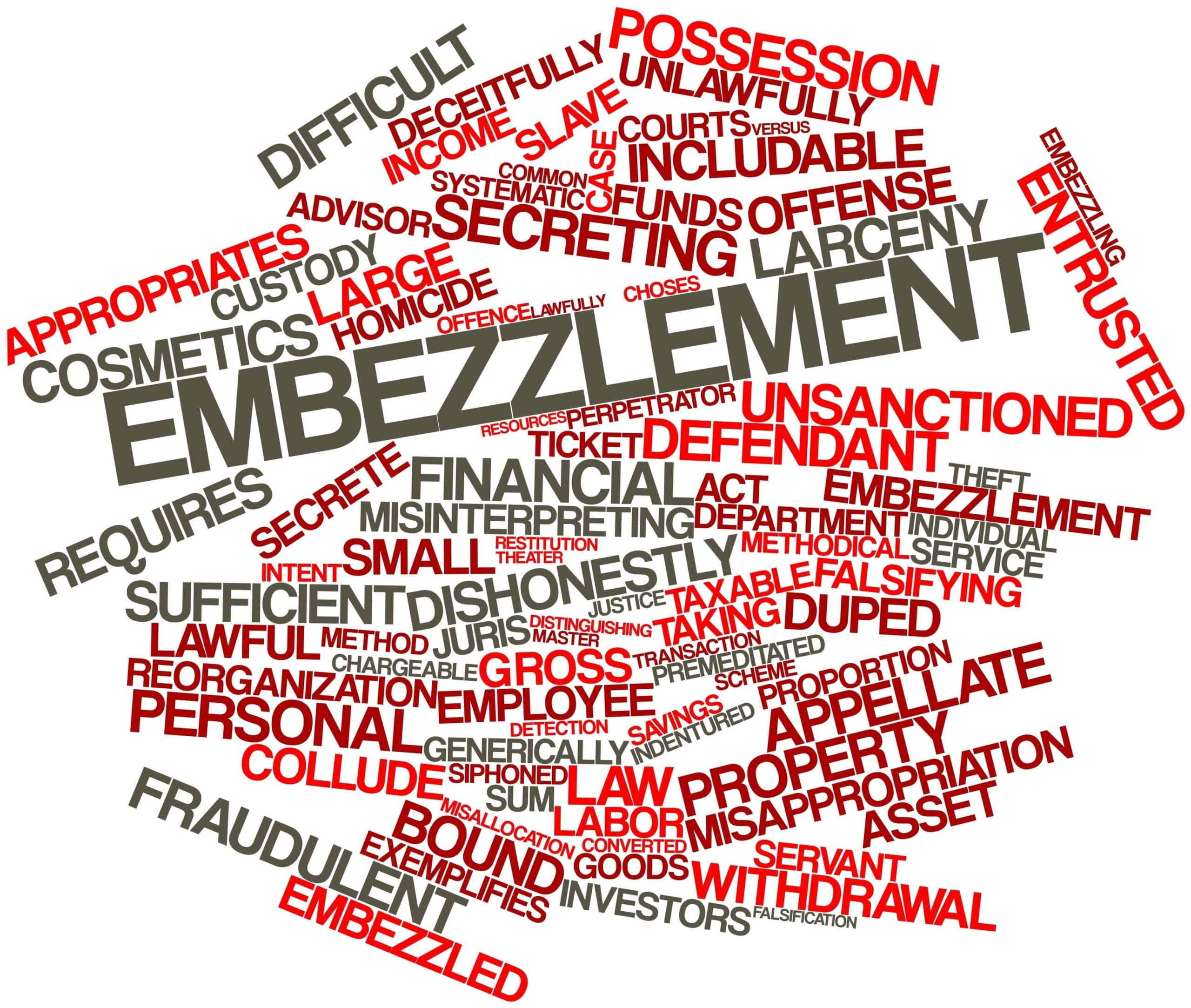- Home
- THE FIRM+
- Criminal Defense+
- CASE RESULTS
- AREAS WE SERVE+
- FAQ’s
- Blog
- Contact
AZHARI LLC BLOG

Posted By: Sami Azhari
Category:
What do you know about Dane Cook?
You might know that he’s a comedian and actor. If you follow such things, you might even know that his second comedy album, released in 2005, was the most popular comedy album in 30 years. What you might not know, however, is that he was the victim of embezzlement by his half-brother and business manager Darryl McCauley.
What happened?
McCauley used his position (both familial and business) to embezzle $12 million of Mr. Cook’s money. Yes, 12 million dollars. Because of this, in 2010 McCauley and his wife were sentenced to prison – he got six years, while she got three – and ordered to repay Cook the money that they admitted to stealing.
From this story, you can probably tell that embezzlement is a crime, and that it involves taking money from another person. There’s a lot more to understand, though, especially if you’re facing potential embezzlement charges here in Illinois. So let’s break down what embezzlement is, the penalties involved, and possible defenses.
What Constitutes Embezzlement In Our State?
Embezzlement is a white collar crime that involves a person being entrusted to take care of someone else’s money or property and then misappropriating that money or property for their own personal gain.
In Illinois, embezzlement charges are brought under 720 ILCS 5/16-1, the theft statute, but they also have other, more specific criteria. Namely, a person commits embezzlement when:
- There is a fiduciary relationship between the embezzler and the victim;
- The embezzler obtains property through that relationship;
- The embezzler takes ownership of the property or gives it to someone else for personal gain;
- The embezzler’s actions are intentional instead of by accident.
In other words, if you were to just steal another person’s money, it would be simple theft or larceny. Embezzlement requires that the person committing the theft has a fiduciary relationship with the victim, which is defined as “a relationship in which one party places special trust, confidence, and reliance in and is influenced by another who has a fiduciary duty to act for the benefit of the party.”
It’s also important to note that the “property” mentioned in the statute can be either tangible or intangible property. Material items such as cars, jewelry, equipment, office supplies, and so on are considered tangible property, whereas stocks, bonds, or even money could be intangible property.
So now you know the legal definition, complete with the associated jargon, but what does embezzlement look like in the real world?
In the case of Dane Cook, it looks like your brother, who is also your business manager, stealing $12 million dollars. However, it could also be an accountant skimming money from his or her clients, or an electronics retail worker taking home a TV or computer belonging to the store.
Consequences of Embezzlement in Illinois
The penalties for embezzlement depend upon the value of the property and whether you took the property from a person or another entity, such as a corporation.
- Under $500 not from a person: Class A misdemeanor punishable by less than one year in prison and up to $2,500 in fines.
- Under $500 from a person or between $500 and $1,000: Class 3 felony punishable by 2-5 years in prison and up to $25,000 in fines.
- Between $10,000 and $100,000: Class 2 felony punishable by 3-7 years in prison and up to $25,000 in fines.
- Between $100,000 and $500,000: Class 1 felony punishable by 4-15 years in prison and up to $25,000 in fines.
- Between $500,000 and $1 million: Class 1 non-probational felony punishable by 4-15 years in prison and up to $25,000 in fines.
- Over $1 million: Class X felony punishable by 6-30 years in prison and up to $25,000 in fines.
These are the general consequences for embezzlement, but if the government, a place of worship, or a school owned the property, the charges are elevated to the next class. For example, if someone embezzles $50,000 from a church, instead of a class 2 felony, it will be charged as a class 1 felony.
Defending Illinois Embezzlement Charges
When faced with embezzlement charges, it’s important to completely understand the details of the crime of which you are being accused. Because an embezzlement is similar to other theft crimes, it’s especially important to know if your conduct satisfies the specific elements of embezzlement.
If you’re a retail worker and you swipe some cash from the register, for example, you can be accused of theft, but you shouldn’t be accused of embezzlement. Why? Because you’re not entrusted with that money. The store manager, on the other hand, could be accused of embezzlement because he or she is responsible for the money.
An experienced Chicago white collar defense attorney will be able to look at the details of your case and determine the best way to proceed to get your embezzlement charges can be reduced, dropped, or dismissed. Reach out today to fight for your rights.
About the Author
Sami Azhari has been working as a lawyer since 2007, after receiving his Juris Doctor from the Michigan State University College of Law. He has handled numerous state and federal cases, and is known throughout the Chicago and Rolling Meadows area for providing his clients with high-quality, skilled representation. He has been recognized by SuperLawyers, the National Trial Lawyers Association, and other notable organizations, and has spoken at a number of legal conferences.



























































